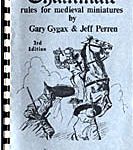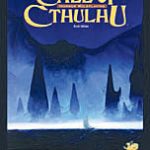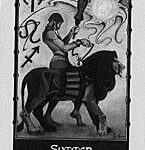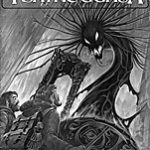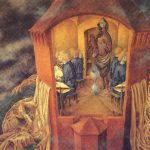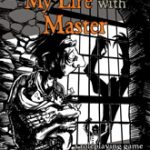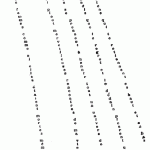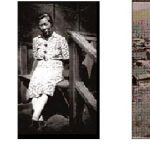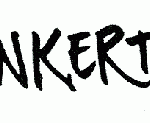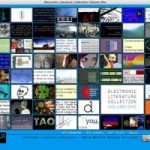2007
Pat Harrigan and Noah Wardrip-Fruin justify their focus on the experience of play over theory in their assemblage of the essays by game designers, players, and critics featured in Second Person - the book.
Greg Costikyan revisits the narrative versus game-play debate that continues to be a staple of both Game Studies and Game Design. He presents a spectrum that ranges from game-focused forms to narrative-centric models, and suggests that free-form role-playing may be the most desireable marriage of narrative and game-play.
Erik Mona takes a first step toward measuring the cultural impact of Gygax and Arneson's Dungeons & Dragons by providing a pocket history of the game's generation and evolution. Mona explains the addition of character development as a game goal - the innovation that distinguishes D&D from its predecessors, and started the role-playing revolution.
Kenneth Hite argues that the long-running, H.P. Lovecraft-inspired Call of Cthulhu franchise differs from traditional tabletop role-playing in its focus on suspense rather than character growth. Hite's analysis suggests that in its origins and emphasis on narrative structure Cthulhu is a highly literary game.
Van Leavenworth, in his response to Hite, delves more deeply into Cthulhu's literariness, in particular the "large adventure book 'footprint'" of the series. He contends that the Lovecraft mythos provides a framework for the generation of narratives that - unlike many RPG stories - hold up beyond the game-play session.
David Alger responds to Herber by disagreeing with the latter's claim that narrative trumps game-play in the Cthulhu "Haunted House" scenario, stressing that even the most narratively driven games still must be playable in order to be games.
Jonathan Tweet explains how, unlike highly narratively structured games such as The Call of Cthulhu, the free-form, character-focused Everway includes a matrix that allows for the creation of coherent characters and productively constrains the otherwise open-ended game-play.
Keith Herber discusses how in his "Haunted House" scenario for Call of Cthulhu, characters are driven insane by their attempt to unravel the game's mysteries. Herber's explanation distinguishes his work from many other role-playing games in which the goal is to develop characters and acquire power and/or wealth. In contrast, characters in Herber's scenario are rewarded with mental instability.
Brian McHale looks back on the movement in "What Was Postmodernism?" He contrasts postmodernism's canonization with critical constructions of modernism, and moves through contemporary painting to reflect on intersections between the violence of recent history and postmodernism, as the postwar world lived "in the ruins of our own civilization, if only in our imaginations."
Paola Cavalieri challenges the book's notion that human superior ethical worth can be preserved.
Lori Emerson introduces a gathering of nineteen electro-poetic essays. This gathering brings together both critics and creators of electronic poetry; as is usually the case in ebr, the 'electronic' does not exclude, but helps us to reconfigure and revalue poetic works in print as well as define what works in digital environments.
Charles Bernstein. Keyword: speed. Speed as a morally coded concept. Speed as success. An ethics of speed. Speed-reading. Virtual reading. Cultural speed-up. Speed kills.
Reading Stephanie Strickland's V: Losing L'una/WaveSon.nets/Vniverse, Jaishree Odin explores the implications of the paradigm shift from modernity to postmodernity for our understanding of reading, writing and living.
Paul Czege explains that he aimed for My Life with Master to be an engine for story creation rather than just another variation on the traditional role-playing game system.
Marjorie Perloff reflects on the legacy of misreadings of Robert Creeley's work and argues that his complex poetics should be read transnationally.
In his review of two of Robert Creeley's last published books, Douglas Manson urges us to read these late poems as sending ideas outward, toward an "outside," so that we begin gathering in tomes, searching for quotes.
Douglas Barbour reads Marjorie Perloff's Differentials: Poetry, Poetics, Pedagogy as a notable addition to her oeuvre, another grab-bag of pertinent, impertinent, and always provocative readings of both a wide range of works and some of the social/cultural contexts in which we read them.
Søren Pold explores the ways in which Christophe Bruno's Iterature expands the notion of literary form and shows what happens when words are no longer only part of a language.
Adalaide Morris considers 'tutor texts' in the Electronic Literature Collection and, in doing so, articulates a poetics for the emerging field of e-lit. Instead of fulfilling Ted Nelson's dream of 'computer lib,' the most compelling entries in the Collection emphasize the continuing necessity of writing under constraint. When the revolution turns out to be, not a liberation from a culture of control but its transformation, practices long familiar to experimental poets in print become generali...
John Zuern considers the significance of the first volume of ELO's Electronic Literature Collection for the future of electronic arts.
